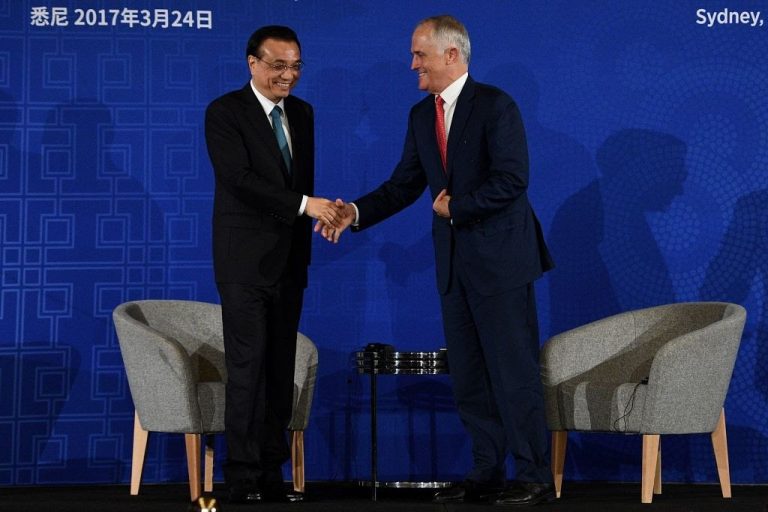The Australian federal government is poised to cancel a 99-year lease awarded to a Chinese firm in 2015 allowing operations at the strategic Darwin Port in the country’s Northern Territory over concerns about the owner’s close ties to the Chinese Communist Party (CCP) and the national security threats posed by the association.
In October of 2015, Shandong Landbridge Group was granted a lease over the Port by the Malcom Turnbull administration after promising to invest $200 million AUD ($154 million USD approx.) into the area over a 25-year period. The company is headquartered in Rizhao, Shandong Province, and its owner, billionaire Ye Cheng, is said to have close ties with the People’s Republic of China (PRC) regime.
Reuters recently quoted an anonymous source from the federal government saying that defense officials were investigating Landbridge and giving serious consideration to terminating the lease over national security concerns as tensions between Beijing and Canberra show no signs of easing.
“Advice has been sought on the port and that will go to national security committee in due time,” said the source.
Prime Minister Scott Morrison appeared to at least implicitly confirm his administration was placing the Darwin lease under scrutiny with the remarks, “In relation to the Port of Darwin, if there is any advice that I receive from the Department of Defense or intelligence agencies that suggest there are national security risks there, then you would expect the government to take action on that,” given in a radio interview according to Bloomberg.
Success
You are now signed up for our newsletter
Success
Check your email to complete sign up
The decision comes as Australia passed new foreign investment legislation in January aimed at protecting the country from foreign manipulation and threats. The laws give the government “retrospective power” to impose new conditions or even force divestment on deals that have already been approved.
The powers have already been used. In April, Morrison’s government stepped in and cancelled Victoria Premier Daniel Andrews’s Belt and Road Initiative agreements signed with Beijing using the new law.
In 2015, Australia’s then-Defense Secretary Dennis Richardson mocked concerns over Beijing’s connection to Landbridge as “alarmist nonsense.” He also claimed there was no risk of the CCP spying on U.S.-Australia naval communications in the Port.
“Dennis never thought it was such a big deal, he was always mildly relaxed about it,” said a senior defense official who spoke anonymously to ABC News.
“[Others] thought it was unnecessary and potentially dangerous. I am not sure it is at the same level as the direct investment that the Chinese government has into ports in Pakistan and Sri Lanka…the potential for port disruption by the operator [Landbridge] at crucial times remains one of my big concerns.”
In Nov. 2015, the Australian Strategic Policy Institute (ASPI) published a report expounding on Landbridge’s Communist Party ties, revealing the firm established an armed militia within the company with the backing of no less than the People’s Liberation Army in August of 2014. In 2015, when Turnbull’s administration announced the lease, Barack Obama expressed mild displeasure because the U.S. was not informed in advance.
Just four years back in 2011, the United States had established a troop presence in Darwin to counter Chinese pressure in the Indo-Pacific. In March 2016, Washington raised concerns about potential Chinese espionage in the port given Landbridge’s association with the PLA.
The U.S. Department of Defense said Beijing could be collecting intelligence on both American and Australian forces stationed nearby.
Neighboring New Zealand has also been facing troubles working with China. Prime Minister Jacinda Ardern recently stated that the interests and values of her country do not mix well with that of the People’s Republic, providing a big obstacle in reconciling the differences between the two nations.














